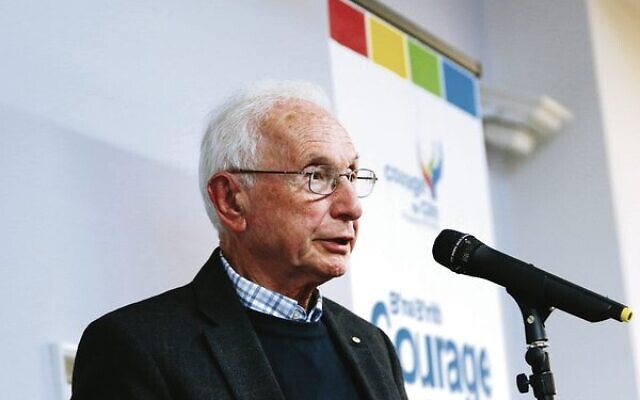International Holocaust Remembrance Day
International Holocaust Remembrance Day falls on January 27, the date Auschwitz was liberated in 1945.
HOLOCAUST survivors and local community leaders will come together to commemorate International Holocaust Remembrance Day (IHRD) and reflect on the important role Holocaust memory has in informing people’s actions into the future.
IHRD, designated by the UN in 2005, falls on January 27, the date on which Auschwitz was liberated in 1945. The Melbourne Holocaust Museum (MHM) will host an in-person event for IHRD on January 30 at its newly reconstructed building.
MHM CEO Jayne Josem said this year’s commemoration will be themed on “keeping memory alive”. The museum will highlight the importance of keeping alive both the voices of Holocaust survivors and the memories of those murdered.
“It is not just a call to remember the past but to reflect on how it can inform our actions into the future, inspiring us to combat antisemitism, racism and prejudice in all its forms,” she said.
She added, “With a recent rise in antisemitism, particularly in Australian schools, keeping memory alive is an essential tool for Holocaust education to foster greater understanding of the devastating impacts of unchecked hate.”
Josem noted that the Australian Holocaust Museum Alliance continues to work together to supply content to museums across Australia to enable all states to deliver or stream cohesive, quality IHRD events.
Attendees at this year’s event will hear testimony from Melbourne-based Holocaust survivor and Emeritus Professor Henry Ekert. As a three-year-old, Ekert experienced the horrors of the Holocaust first-hand, arriving in Australia after World War II, aged 13. He has written a book on how he and his parents survived the Shoah, relating his story to schoolchildren through Courage to Care as a caution against prejudice and bullying in Victorian schools.
Ekert became an acclaimed paediatric haematologist at the Royal Children’s Hospital. He has taken part in creating guidelines for the use of blood products in Australia and has had a major role in improving health care on the Mornington Peninsula through the Peninsula Health Board.
As part of the event, acclaimed Yiddish music group the Bashevis Singers will perform live at the museum. Offering a reflection ahead of the event, the group stated, “Without memory and the rituals of remembering, the Jewish people would long have disappeared.
“Collective memory is our shared inheritance. It transcends time and place. It is the essence of our peoplehood. It is at the centre of Judaism. Collective memory lives outside of time. In our collective memory, they live, those who came before us, present in their suffering and endurance and their triumphs.”


comments